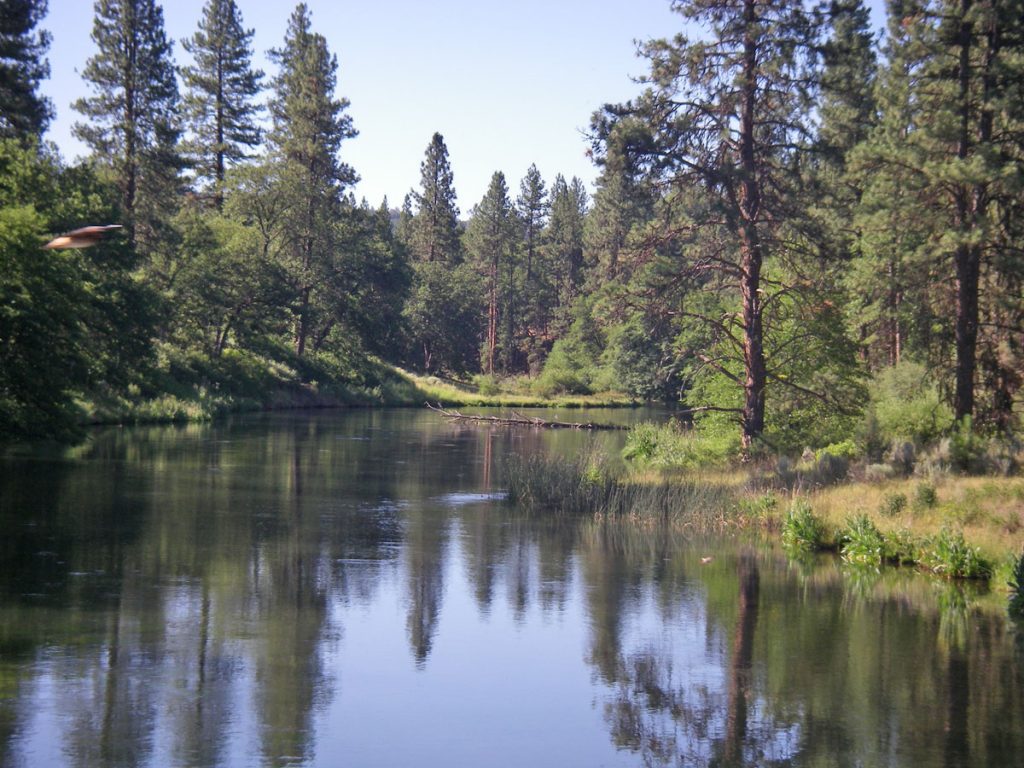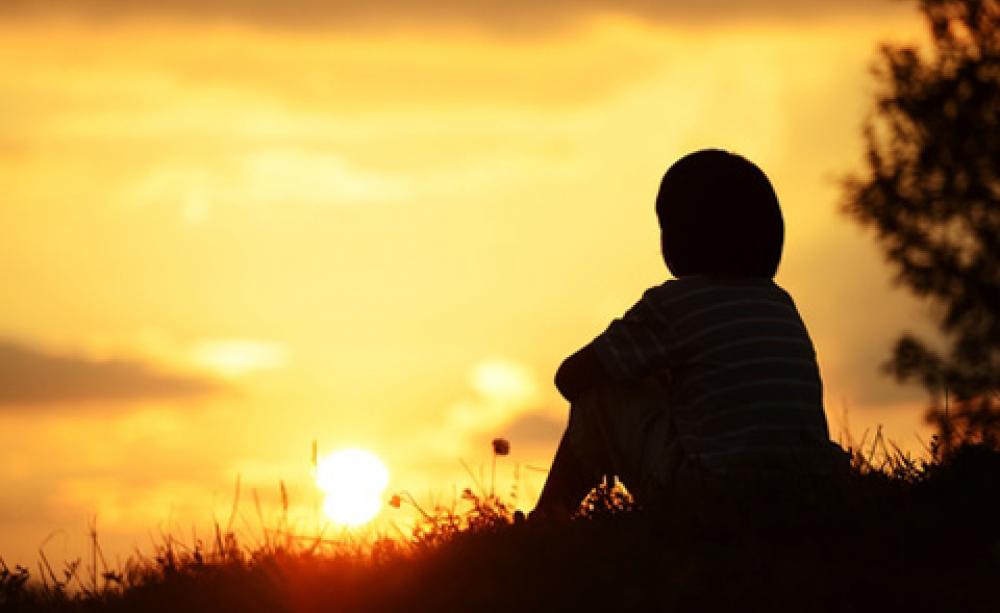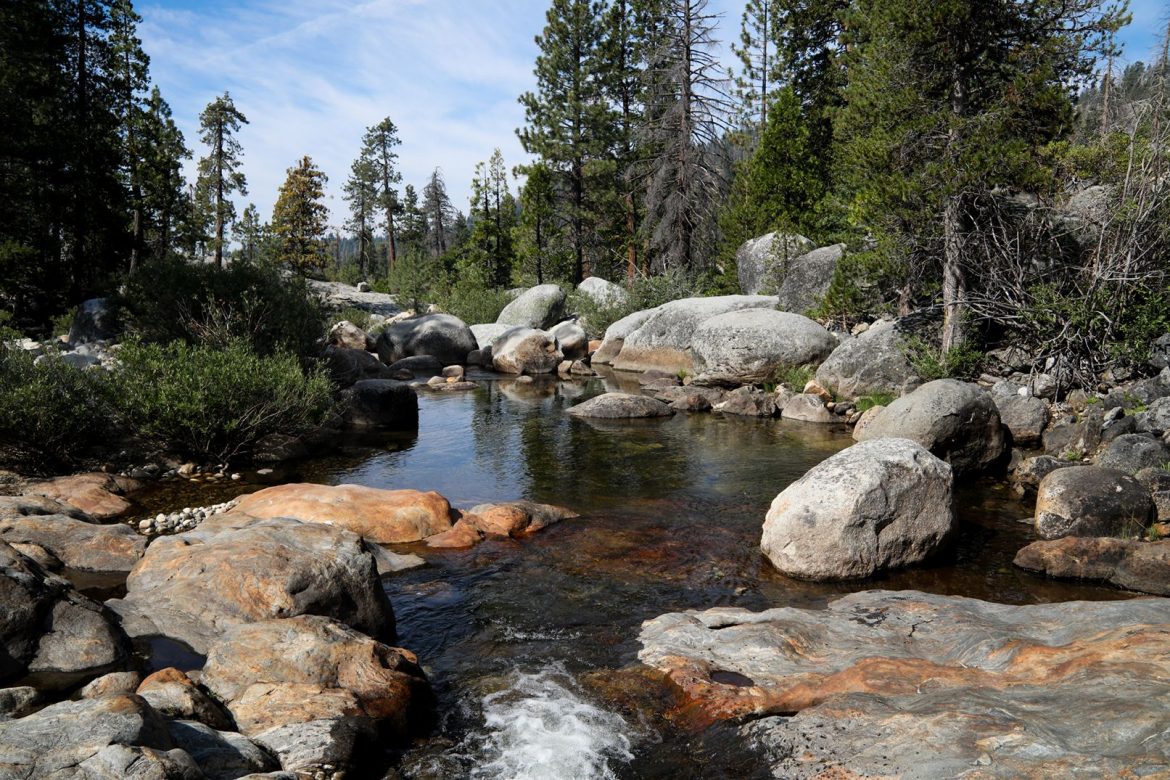The rains haven’t come yet, but the leaves have begun to turn—yellows mostly. It’s early autumn in California, and the winds have cleared and cleaned the air after months of depressing smoke and toxic haze. For a half hour, sunlight streams through the trees and onto the spot where I sit beside the creek. There is timelessness and peace.
Have you noticed that there are a few days of the year that stand out in their beauty? Today was one of those days, which occur only once or twice per season in my experience.
As self-involved humans, it’s hard to be sure that one isn’t merely having a good day, or in a good mood. I don’t think so though, since one’s mood and self-concern is emptied and forgotten by the beauty of the Earth on such days.

I pedal out beyond the new construction to look at the canyon and foothills, which are breathtakingly vivid in a cloudless sky. A young man in hardhat exits a trailer-office as I pull over. He says hello, and I comment on how clear the hills are.
“Yes, I live up there,” he replies, pointing up beyond the canyon that forms Upper Park, “and this is as clear as I’ve ever seen them.” He’s the son of the owner of the construction company, and he seems to fit the role and not fit it at the same time.
Though we’re standing at least six feet apart, he pulls up a scarf-like mask as we talk. I reach into my pocket and put on a surgical mask. I ask what it’s like around Paradise Lake, my favorite place to meditate before the fire that incinerated the town two years ago, and he says some logging has taken place there.
I give him my card, and we talk about having a beer outdoors at a bar. I take a last look at the brown, shimmering hills, and ride back.
This damn pandemic makes you appreciate little human exchanges a lot more. I can count on one hand the times I’ve exchanged more than a few passing words with strangers in the last few months.
There are two primal fears all people share. The first is being socially outcast, since for thousands of years in the wilderness before so-called civilization, ostracization meant death.
The second, and directly related inwardly, is leaving the known. The known once meant the accretion over uncounted generations of culture and tradition, of beliefs about animal spirits and human relationships embedded in the natural world—entirely orally transmitted.
Since the invention of writing, knowledge and the known (not the same thing) were also transmitted by tablets and parchment, and then books after the invention of the printing press, and now digitally, which is encompassing virtually all human knowledge and experience.
It is extremely rare for anyone to leave the stream of the known, so rare that I wonder how many people even know what I’m talking about.
In the simplest terms, leaving the stream of the known means a spontaneous stillness of mind, the cessation of thinking and thought, and the ending of the continuity of psychological memory.
These are words, not the thing. The actuality is an acute state of awareness, which occurs when passive watchfulness gathers sufficient attention—a very different thing than concentration.
These two primal fears arise during deeper states of meditation—the fear of being utterly alone; and the fear of knowing and being nothing.
We fear leaving the stream of the known because we equate it with losing one’s mind. When one remains with that fear however, one realizes that one is not losing one’s mind, but gaining Mind.
Given that’s true, a tremendous question arises. If, through random evolution the human brain is potentially a vessel for the numinous (the intrinsic awareness and sacredness that permeates the universe), why is it so rare and difficult to attain that level of awareness?

To my mind, cosmic and terrestrial evolution is essentially a seamless movement, without a ‘Prime Mover,’ beginning with the misnomer of ‘chaos’ to the higher levels of order of galaxies and stars, and from simple to complex biology, where life has the right conditions to take hold and enough stability to develop.
I feel that physics, chemistry and biology follow the same basic principles everywhere in the universe. If so, that means single-celled life is common; multicellular life is rare; and potentially intelligent life like we humans is rare. How much more rare is genuinely intelligent life?
What, you may ask, does all this have to do with the terrible disparities and darkness of this world, not to mention the pressing challenges and day-to-day struggle to survive?
Perhaps nothing. Perhaps everything.
Martin LeFevre

